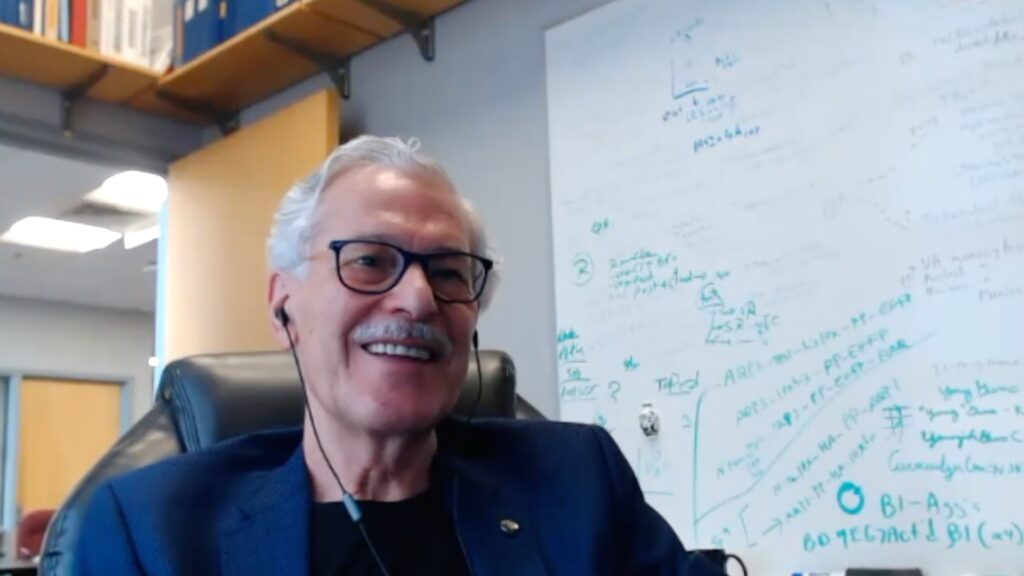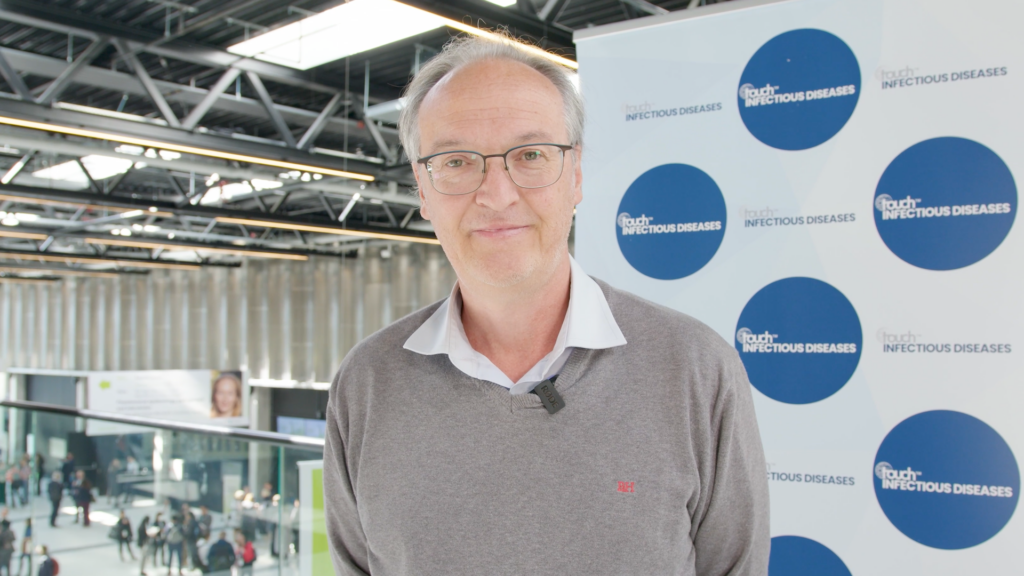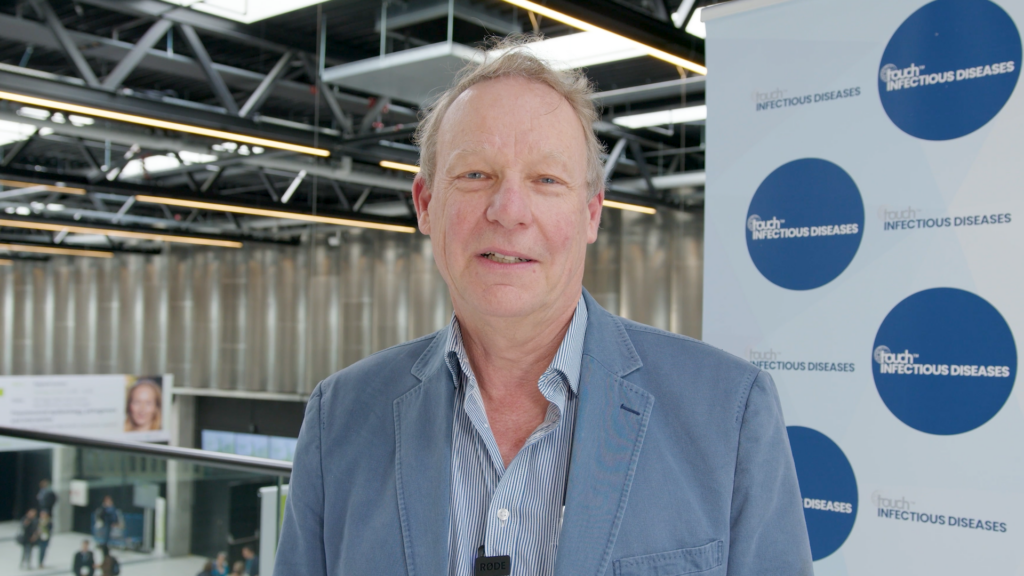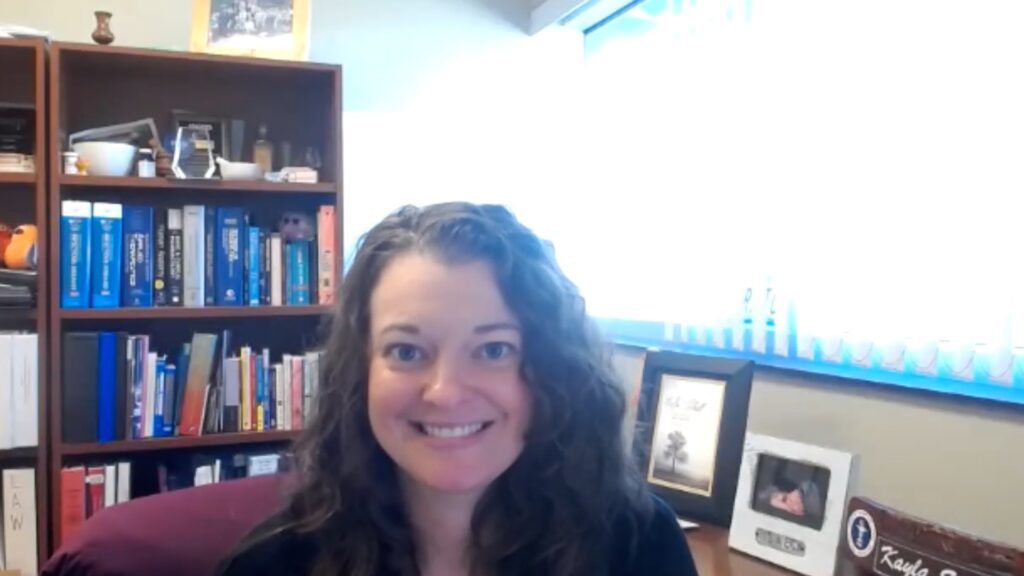The ESCMID Global Congress 2025 brought together world-leading researchers and clinicians to present practice-changing updates in infectious disease management. This article distils five critical insights from interviews and landmark trial results, covering innovations in antimicrobial therapy, fungal infections, resistance surveillance and stewardship.
Read on for expert perspectives shaping the next era of infectious disease care.
Dr Anthony Bai
Queen’s University, Kingston, Canada
 “I was most looking forward to the preliminary results from the SNAP trial (SNAP aims to improve treatment outcomes for patients with Staphylococcus aureus bloodstream infections) (NCT05137119)1,2,3, which was shared at ESCMID Global this year. I’ve been involved as a site investigator, and it’s been led by Dr Steven Tong and Dr Joshua Davis in Australia, who have done an incredible job coordinating this large international collaboration. The SNAP trial had recruited thousands of patients from countries including Australia, Canada, Israel and the UK. The results presented focused on one of the trial’s key comparisons – cefazolin versus cloxacillin (or other antistaphylococcal penicillins) for methicillin-susceptible Staphylococcus aureus bacteremia. These are some of the most commonly used antibiotics for this infection in our practice, and I believe this is one of the most important questions we can answer for improving treatment outcomes.”
“I was most looking forward to the preliminary results from the SNAP trial (SNAP aims to improve treatment outcomes for patients with Staphylococcus aureus bloodstream infections) (NCT05137119)1,2,3, which was shared at ESCMID Global this year. I’ve been involved as a site investigator, and it’s been led by Dr Steven Tong and Dr Joshua Davis in Australia, who have done an incredible job coordinating this large international collaboration. The SNAP trial had recruited thousands of patients from countries including Australia, Canada, Israel and the UK. The results presented focused on one of the trial’s key comparisons – cefazolin versus cloxacillin (or other antistaphylococcal penicillins) for methicillin-susceptible Staphylococcus aureus bacteremia. These are some of the most commonly used antibiotics for this infection in our practice, and I believe this is one of the most important questions we can answer for improving treatment outcomes.”
See the full interview with Dr Anthony Bai here
Dr Xin Hui Chan
University of Oxford, Oxford, UK
 “There’s been a strong focus this year on climate change and health, which I think is incredibly important. I work on vector-borne infections, and climate change is having a huge effect on how vectors spread – particularly mosquitoes, but also ticks and others. Their ranges are expanding, and that’s having a real impact on disease transmission. There have been some excellent keynote talks and sessions on that topic.
“There’s been a strong focus this year on climate change and health, which I think is incredibly important. I work on vector-borne infections, and climate change is having a huge effect on how vectors spread – particularly mosquitoes, but also ticks and others. Their ranges are expanding, and that’s having a real impact on disease transmission. There have been some excellent keynote talks and sessions on that topic.
In terms of trials, I was particularly excited about preliminary results of the SNAP trial1 results on Staphylococcus aureus bacteraemia, which are highly relevant to my clinical practice in infectious diseases.3,4”
See the full interview with Dr Xin Hui Chan here
Dr Simon Feys
University Hospitals Leuven, Belgium
 “With my background, I was particularly interested in the fungal sessions – especially those on novel antifungals, which are highly relevant to my research and clinical practice. I enjoyed the sessions on infections in extracorporeal membrane oxygenation (ECMO) patients and a talk by Dr Evangelos Giamarellos-Bourboulis on macrolides and pulmonary infections. These are important and timely topics in critical care.5
“With my background, I was particularly interested in the fungal sessions – especially those on novel antifungals, which are highly relevant to my research and clinical practice. I enjoyed the sessions on infections in extracorporeal membrane oxygenation (ECMO) patients and a talk by Dr Evangelos Giamarellos-Bourboulis on macrolides and pulmonary infections. These are important and timely topics in critical care.5
From Leuven, several colleagues presented – including researchers from our lab: Dr Jannes Heylen, Dr Lenn Maessen and Dr Valentine Delanote. Dr Delanote presented new data on the longitudinal galactomannan profiling in patients with severe viral pneumonia. It’s exciting to see that work reaching an international audience.6”
See the full interview with Dr Simon Feys here
Dr Ikechukwu Benjamin Moses
Paulista School of Medicine (EPM), Federal University of Sao Paulo (UNIFESP), Brazil
 “I was particularly interested in sessions on alternative treatment strategies. Bacteriophage therapy, for example, has been in use in Eastern Europe for years, especially in Russia and Georgia, and I was interested to see the latest data and innovations from those regions.
“I was particularly interested in sessions on alternative treatment strategies. Bacteriophage therapy, for example, has been in use in Eastern Europe for years, especially in Russia and Georgia, and I was interested to see the latest data and innovations from those regions.
There’s a lot of emphasis on antimicrobial resistance and drug development, which is important, but I’d like to see more around novel proteins and alternative therapies for drug-resistant infections. These are areas with significant potential and not enough global focus.
Besides my Emerging Young Investigator Award, I’m especially excited to have won the ESCMID Global Individual research grant. I’m very grateful to ESCMID Global for selecting my research proposal for funding, after a very competitive process. This new research funding will support my current project investigating phages active against methicillin-resistant Staphylococcus pseudintermedius – a serious veterinary pathogen. I’m hopeful this research will lead to viable treatment options.”
See the full interview with Dr Ikechukwu Benjamin Moses
Editor: Katey Gabrysch
Disclosure: There was no funding received in the publication of this article.
Cite: #ESCMID Insights: Key infectious disease updates clinicians shouldn’t miss. touchINFECTIOUS DISEASES. May 22, 2025
References:
- SNAP Trial. About SNAP. Available at: www.snaptrial.com.au (accessed 22 May 2025).
- Tong SYC, Fowler VG, Davis JS, et al. The Staphylococcus aureus Network Adaptive Platform Trial protocol: new tools for an old foe. Clin Infect Dis. 2022;75(6):990–7. https://doi.org/10.1093/cid/ciac476
- S. Aureus Network Adaptive Platform Trial Group. L0033. Benzylpenicillin versus (flu)cloxacillin for the treatment of penicillin-susceptible Staphylococcus aureus bacteraemia: a randomised controlled trial of the S. aureus network adaptive platform (SNAP). Presented at: ESCMID Global, Barcelona, Spain, 27–30 April 2024. Abstr #L0033.
- S. Aureus Network Adaptive Platform Trial Group. L0034. Cefazolin versus (flu)cloxacillin for the treatment of penicillin-resistant, methicillin-susceptible Staphylococcus aureus bacteraemia: a randomised controlled trial within the S. aureus network adaptive platform (SNAP). Presented at: ESCMID Global, Barcelona, Spain, 27–30 April 2024. Abstr #L0034.
- Giamarellos-Bourboulis EJ. Macrolides in community-acquired pneumonia: therapeutic necessity or path to overuse? Presented at: ESCMID Global, Barcelona, Spain, 12 April 2025. Session 05.
- O0935. BAL galactomannan dynamics predict survival in critically ill patients with virus-associated pulmonary aspergillosis. Presented at: ESCMID Global, Barcelona, Spain, 12 April 2025. Abstr #O0935.
SIGN UP to touchINFECTIOUS DISEASES!











